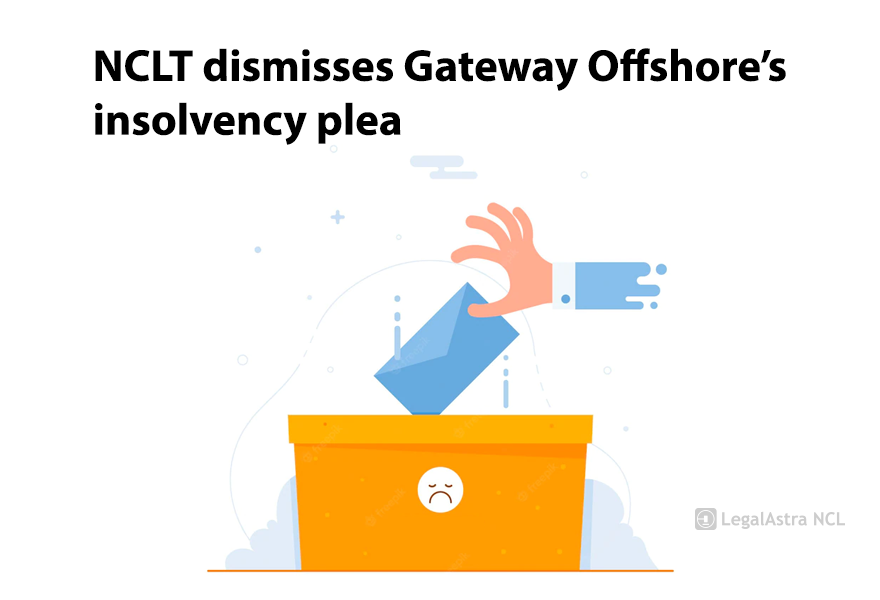The NCLT Mumbai court has dismissed a petition filed by Gateway Offshore against Pune-based realty developer Runwal Realtors to admit the company under the Corporate Insolvency Resolution Process (CIRP).
The Mumbai bench of the National Company Law Tribunal (NCLT), while rejecting the arguments made by Gateway Offshore in its petition, observed that in absence of any written document indicating the purpose of the transactions between the parties, it cannot be assumed to have been towards a loan.


Track your NCLT / NCLAT cases or orders in your apple iOS / Google Android smartphones. Available for free trial period of 15 days.
“A written contract cannot be treated as a prerequisite to proving the existence of a financial debt, the Adjudicating Authority must be satisfied that the corporate debtor is not being dragged into Corporate Insolvency Resolution Process mala fide for any purpose other than the resolution of the insolvency,” said the Justice.
In its petition, Gateway Offshore had approached the tribunal to recover around Rs 5 crore including interest with the arguments that the Mumbai-based developer had borrowed the amount at 9% interest and it has now failed to repay the dues.
Countering this, the developer had argued that the amount advanced by the petitioner firm was not a loan but for the purpose of a joint venture. The developer argued that the financial creditor (Gateway Offshore) has disbursed the amount for the joint development of a land parcel owned by the Runwal Realtors and said that originally the petitioner company were liable to contribute Rs 17 crore.
Accordingly, the corporate debtor has raised a counterclaim for the remaining amount. However, if the lender chooses to challenge the ruling, the higher court will have to determine the issue of nature of the debt first, feels legal experts.
“The financial creditor has produced the corporate debtor’s annual reports for the financial years 2016-17 and 2017-18. However, the same does not reflect any debt due specifically to the financial creditor,” the tribunal in its order of June 10.
